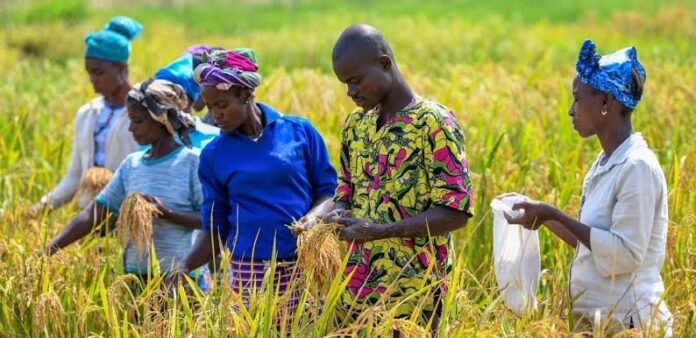A non governmental organisation, ActionAid Nigeria (AAN), has lamented the inability of women farmers to access agricultural extension services.
In a study titled ‘Community Participatory Assessment of Government Expenditure on Agriculture/Community Score Cards on Smallholder Women Farmers Access to Extension Services’ AAN pointed out the challenges of women farmers become a source of worry to stakeholders as they have continued to suffer neglect.
ActionAid Nigeria is working hard to strengthen the capacity of farmer-federations and women’s organisations, enabling them to engage directly with government agencies and institutions for effective and efficient agriculture budget allocations and utilization that favours smallholder women farmers.
According to the study, women farmers make up 70 per cent of agricultural labour; 50 per cent in animal husbandry related activities; and 6p per cent in food processing activities.
However, women have access to less than 20 per cent of available agricultural resources despite their enormous contribution to food production and feeding over 200 million mouths on daily basis.
The study indicated that, “However, the effectiveness and efficiency of the extension system have remained a major source of concern as they have not produced the desires results that will ensure sustainable agricultural development, poverty alleviation and improved livelihood, especially, for rural farm families.
“The major challenges limiting women farmers’ access to effective agric extension services that the critical stakeholders including Federal State Governments, development partners and Civil Society Organisations, CSOs, need to focus on are inadequate staffing, poor funding.
“Lack of training opportunities for extension personnel, lack of mobility for extension personnel and for field monitoring.
“Lack of parity in renumeration between the livestock extension agents and others.
“The other area of focus is on; small-scale women farmers’ lack of access to important production- enhancing inputs, particularly, improved seeds and seedlings, fertilizers, and land preparation processing equipment.
“Limited access to farming land, compounded by insecurity in the farms.
“Limited access to agricultural extension services; Lack of capacity building opportunities; Lack of access to processing and storage facilities.
“Lack of access to market information.”
Meanwhile, AAN recommended that: “The enactment of an agricultural extension policy to guide and regulate the practice of agricultural extension and advisory services in Nigeria, for assures and sustainable funding mechanism and quality control.
“Special Extension Outreach Programme for women, youth and other marginalized groups.
“Extension staff service condition require review to make the service attractive, especially, now that youth are being encouraged to go into agriculture. The dichotomy between livestock salary scale and others in the agricultural sector must be addressed.
“Significant improvement in the funding of public agricultural extension services by the Federal and State Governments.
“There must be synergy between the donor-assisted projects located within the Ministry and ADP activities to avoid duplication, wastage and unhealthy rivalry.
“The same must be done with the other State created agencies that have extension objectives. Rather than create new structures, the ADP structures and staff must be strengthened to take on the new responsibilities.”
Follow the Neptune Prime channel on WhatsApp: https://whatsapp.com/channel/0029Va74ZvU2v1IqKByXoX3d
Do you have breaking news, interview request, opinion, suggestion, or want your event covered? Email us at neptuneprime2233@gmail.com


